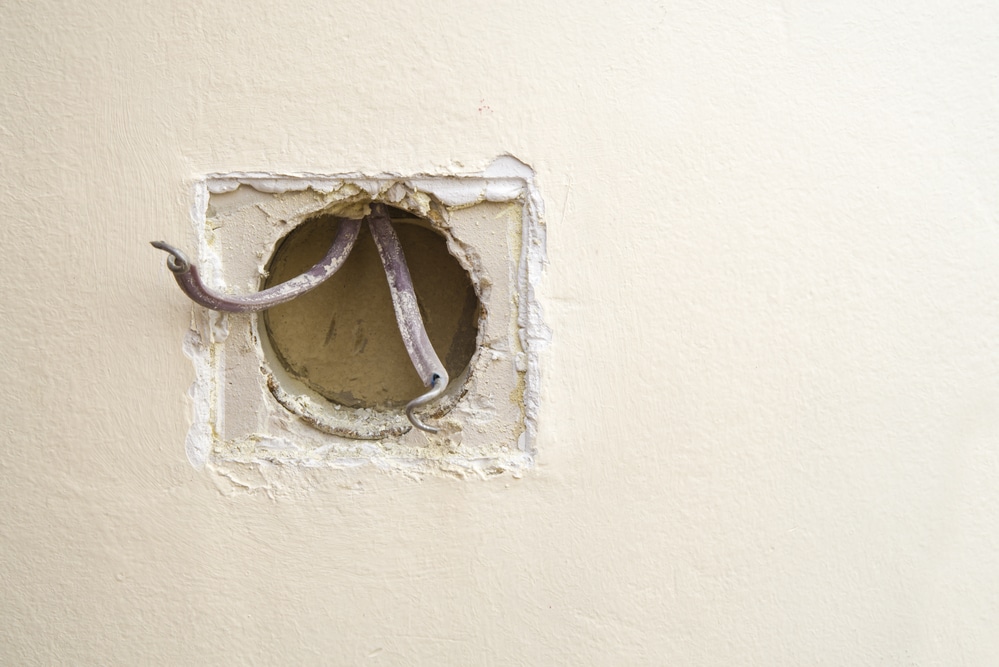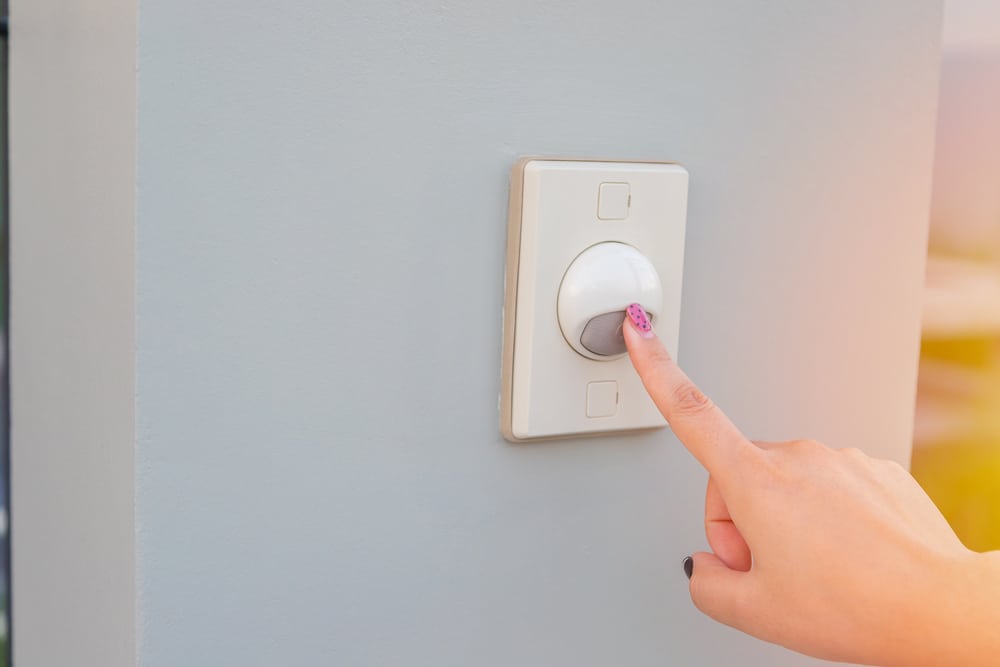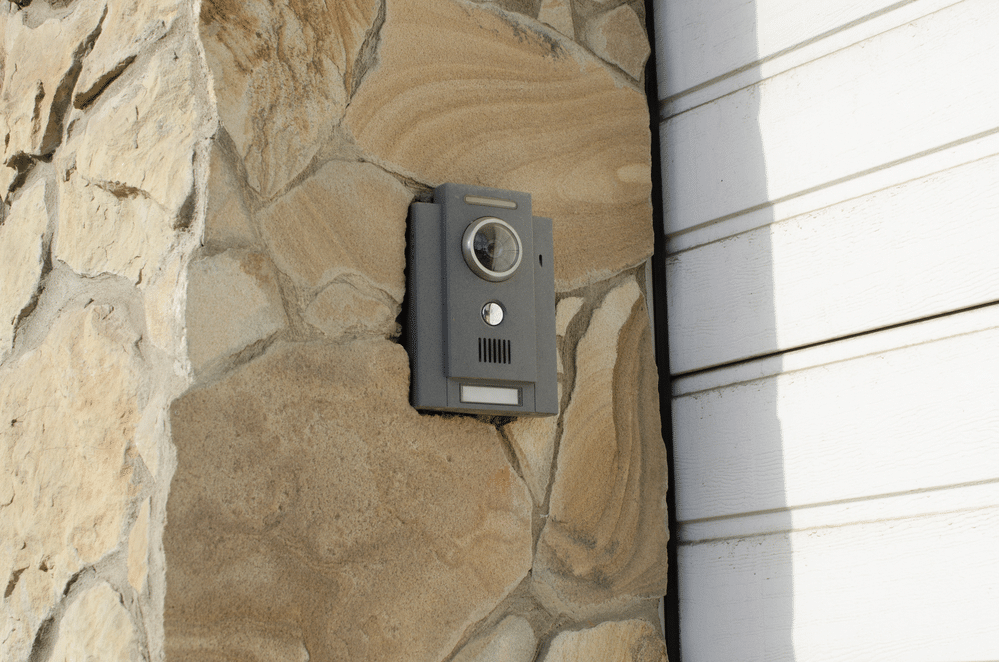Last Updated on
Choosing between wireless and wired doorbells can be difficult. After all, both products have their own pros and cons to consider. While wireless models are becoming increasingly popular for people who want to avoid having to wire their doorbell systems into place, wired doorbells still offer phenomenal reliability and resilience.
Both wired and wireless doorbells give homeowners an excellent way to ensure they’re always the first to know when someone arrives at the door. Each of these products can also be as simple or as advanced as you choose. There are wireless video doorbells or systems with built-in two-way communication options and video doorbells to explore too.
The question, however, remains; wireless or wired doorbells? Which is better for your home? Let’s take a look at their differences to help you choose the right model for your home.
Wired Doorbells

Doorbells with traditional wired systems used to be the most common option. These tools are connected to your electrical wiring and circuit breaker box, so you don’t need to worry about replacing any batteries. However, these products do require a little more work to install. You may need some basic wiring and household electricity knowledge to start.
While installing wired systems is relatively straightforward, some people may prefer to hire an expert to install their traditional doorbells. This is particularly true when homes have complex wiring systems to configure, which means you need to pay a little extra for a wired doorbell overall.
Wired doorbells also require you to potentially make some changes to your home’s layout. With a hard-wired doorbell, you’ll need to ensure connecting wires can extend safely from the front door and your doorbell button to the inside of your house.
The Pros and Cons of Wired Doorbells
Traditional doorbells require wiring into the power supply within your home. However, they also have a number of benefits. For instance, you might be able to access advantages like:
- More attractive designs: Traditional doorbells can come in various styles to help decorate your front door. You can find ornate antique metallic scroll designs or retro brushed steel finishes and bells in different colours.
- Affordability: The pricing of a hard-wired doorbell is usually about the same as the price for other wireless models. However, as mentioned earlier, you may pay a little extra for installation.
- More options: Some wired doorbells can include lighted push buttons, making them easier to find at night. A wireless doorbell would use too much energy keeping the button lit to make it practical for most homeowners.
- No interference issues: With a wired doorbell, you don’t have to worry about other signals in your home interfering with how your doorbell works.
- Attractive traditional chimes: Most wired doorbells feature a number of classic chime tones to choose from, which can be ideal for those who prefer classic, high-quality sounds
On the other hand, wired doorbells can be difficult to install and cause quite a mess around your doorway due to the use of various wires.
Wireless Doorbells
A wireless doorbell is a device with an internal power supply, such as a battery, which keeps it operational without an existing wiring system. Wireless systems can be both efficient and easy to use, and they don’t require you to make any alterations to your entryway. While wired doorbells are powered by a direct connection to your electrical system, their wireless counterpart use a battery-operated device connected to a receiver somewhere in your home.
You’ll plug the receiver into an outlet within your property so it can emit the sound of the chime when your doorbell button is pushed. Wireless doorbells rely on radio signals to operate, which means they can sometimes be affected by opposing frequencies in your home.
However, they’re extremely versatile and don’t require you to drill any holes into your wall. Most of the time, you won’t need to hire a professional to install a battery-powered doorbell on your behalf, meaning you could save some money.
The Pros and Cons of Wireless Doorbells
When it comes to choosing between wireless and wired doorbells, most people are beginning to opt for the former product.
One of the reasons battery doorbells are replacing wired models in many homes is that they’re extremely easy to use in any environment. Substituting traditional wired systems with wireless alternatives gives you access to all the features you typically get from a doorbell without the extra cables. The benefits of wireless doorbells include the following:
- Excellent range: Most wireless doorbells have excellent range built into the wireless transmitter. Extenders are also available for people with larger homes, ensuring they still get great functionality from their system.
- Multiple channel operation: You can usually avoid interference from other devices by changing the frequency or channel on which your wireless doorbell works. This option makes it easier to address problems with neighbour video doorbells getting in the way of your transmission.
- Advanced functionality: Many wireless doorbells can feature a range of capabilities, including video access and two-way communication. They also offer a wide range of different melody options for your door chimes. Some can even include flashing LED lights for people who have hearing impairments.
- Long life: Although you do need to change the battery on your wireless doorbells from time to time, most of these products are designed to stand the test of time. Some doorbells can operate for years before a battery replacement is needed.
- No home modifications needed: With wireless doorbell systems, you don’t have to worry about drilling into your walls or doors or changing your electrical structure. This can save you a lot of time, money and effort.
However, wireless doorbells can sometimes be less robust and easier to break from a security perspective. They also have the issue of interference to think about.
Wired or Wireless: Which Would You Choose?
So, between wireless and wired doorbells, which is better? Simply put, it depends on you. A wired doorbell will give you more resilience and excellent durability, while a wireless doorbell can save you time and effort when it comes to installation.
Rebekah is a writer who loves to explore new products and find hacks that make life easier. She has a knack for all things home improvement, health and fitness. So you’ll often find her on Pinterest or browsing Houzz for ideas.
She’s always looking for the next thing to fix up around the house or what gadget might be just right for her lifestyle. Rebekah enjoys exploring new recipes, taking care of her family, and making sure she stays healthy with regular workouts at the gym.



